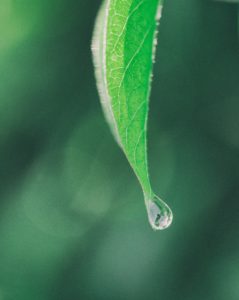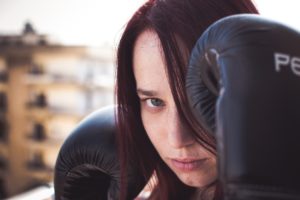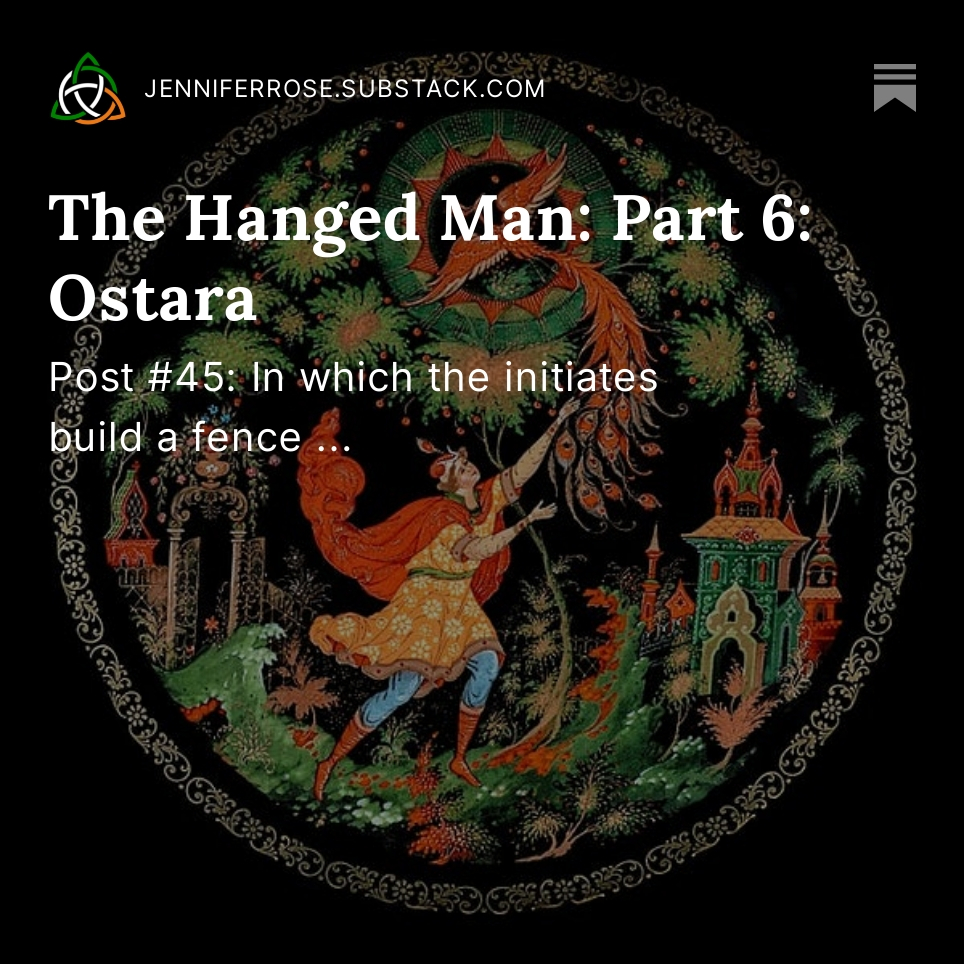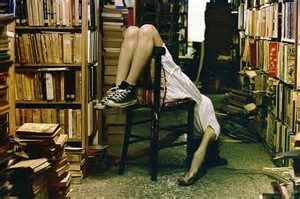by Jenny Rose | Apr 8, 2023 | A Flourishing Woman, The Journey
Delayed closure is a wound treatment strategy in which complex wounds with extensive soft tissue damage and high levels of possible contaminants are treated with initial control of bleeding, cleaning, and debridement, and then left open for a period of time during which the possibility of infection is treated proactively. At the time of delayed wound closure, further debridement of scar tissue or dead tissue takes place.
As I count down the days and prepare for my second trip out to Colorado this year to manage my mother’s recent admission to memory and hospice care, the phrase ‘delayed closure’ reverberates through my mind.

Photo by Ryan Moreno on Unsplash
Delayed closure.
I have recognized for some weeks the significance of this second return to the place I called home for more than 20 years and my frail, confused, aging mother. At least, I have begun to recognize the significance. Every day brings added clarity. Awe is not too strong a word for what I feel.
When we flee people, places, or situations (and my flight from Colorado to Maine eight years ago was all three), it’s not an elegant, dignified process. It’s a frantic life-or-death flailing and thrashing, a single-minded determination to survive, whatever it takes.
The process leaves wreckage behind, a lot of unfinished business, a lot of rending and tearing, misunderstanding and hurt. It leaves, in other words, a complex psychic wound, not a clean laceration.
When I found myself in Maine, I thought I would not survive the trauma. I had torn myself up by the roots and gone to ground in a strange place I’d never been before. I felt like skin and hair wrapped around a suppurating wound of such longstanding duration and composed of so many different kinds of damage it didn’t seem possible it would ever heal. I didn’t think of healing. I didn’t hope for healing. I was a feral creature in survival mode.
I had no idea I had in fact saved my own life and taken the first steps to transformation, and I wouldn’t have cared if I’d known.
All I was doing was surviving.
In medical care, part of the strategy of delayed wound closure is giving the body’s natural defenses a chance to overcome infectious bacteria rather than sealing them in.
What were my natural defenses?

Photo by Aaron Burden on Unsplash
Water. My home in Colorado had been enduring a years-long drought. The wind blew all the time. Gaunt, dusty cattle stood sunken-eyed on plots of hard-baked ground. The wind blew relentlessly, scouring the land with flying sand, dust, and debris. We prayed for rain as we hauled grey water to our gardens. The city imposed restrictions on outside watering, car washing, any outside fires. Trees died. Fires consumed the land. It was apocalyptic, a hellscape with no relief in sight. Our water bills went up and up for simple household use. The rain didn’t come, year after year.
Maine was a revelation. Water. Big water, like I’d never seen before. The Kennebec River. Puddles everywhere, each with a duck. The people here call an enormous lake (to my eyes) a pond. Huge trees. Hip-high ferns. Moss.
Moss!
Rain. It rained. It actually rained. Measurable rain falling for hours, sweet, cool, life-giving. Mist. Fog. To breathe was to absorb water like a desiccated sponge. My cracked skin healed, drinking in the moisture. I lived in a house with a hand-dug well. No water bill. Free water! I trained myself to flush the toilet every time! My hair curled, growing out rather than down.
I lived in the country in Maine. No one knew me. No one knew I existed or any member of my family. For the first time in my life I escaped everyone’s expectations. No one demanded anything from me. No one watched me with critical eyes. No one told stories about me. I had no reputation. I was free, untethered from everyone and everything. I could think my thoughts and feel my feelings in safety and privacy. I could read, or work, or sleep, or take a walk, or garden without interruption or someone telling me I was failing. No one demanded anything from me. I had no emotional labor to do. I rested in the healing solitude of nature, laying my hands on trees, sitting on rocks watching little spring streams trickle, sitting in the sun listening to the birds, lying in bed listening to the owls, coyotes, and spring peepers in the pond.
Writing. In 2016, a year after I arrived, I began this blog. I had no expectations. My sole intent was to write my truths in my own uncensored voice without trying to please anyone, in spite of my fear. I had done some writing in Colorado, but always with a sense of guilt and shame, always with the fear of what others would think. I knew everything I wanted to write would be looked upon as unforgiveable betrayal or wildly shameful.

Photo by Angelina Litvin on Unsplash
In Maine, so far away in a new life, I discovered my courage and started, week by week, recording my journey from a broken, cringing creature, filled with self-loathing, to a strong, confident woman. At the same time, I pulled together my scrawled notes and the stories I’d written in the dim, hidden edges of my life and finished a book. Then I started another one. Then I finished the second book and started a third one.
These were my natural defenses: water, nature, and writing. Slowly they overcame the infection in my ravaged soul.
Yet the wound did not close. It stopped stinking and bleeding. Scar tissue formed. But I had lost too much to pull the edges together and make a neat closure. I had saved my life. I had survived and gone on to thrive. But I knew I was not done.
I know an old story about amends; it says only the hand that dealt the wound can heal it. Sometimes we must flee in order to live to fight another day. I fled, and I was right to do so, but flight leaves no time for closure. For closure sometimes we must go back.
Delayed closure.
The first time, in January, I was afraid to return. Afraid of judgement. Afraid of old pain. Afraid of what others would think, or say. I was afraid to have my memories stirred up. I was afraid my wound would tear open again, and this time I would not survive.
What happened instead was acceptance and love in the arms of old friends. My love for them was met by their love for me. The place, dear and familiar, welcomed me, though I no longer call it home. I found changes, of course, but not painful changes. Natural changes. I realized my fear had kept me from the closure I need, and my fear, once faced, amounted to nothing. In reclaiming my power, I was able to gain perspective. I’m just a part of that little town in the way it’s a part of me. I’m not the most important part of it and never was. It’s not the most important part of me and never was.
Having reclaimed my power, I felt and expressed my honest love and affection for the place and the people without needing anything in return, although I received much in return with gratitude and, I hope, grace. I examined the wound again, debriding scar tissue, cutting away necrosis, until my soul was healthy and vital once more. Some lines. A few silver scars. But free of infection, free of pain.
Still, when I came home to Maine again, I knew I was still not finished. Closure was not complete. I knew one day I would return once more to the place I had left.
In less than a week I’ll be there again, this time for a longer period. We must prepare for and hold a living estate sale: clean, sort, sell, discard, donate, and perhaps store a house full of, not my mother’s life, but her stuff. The things from which she constructed her identity. We must see to repairs and the business of welcoming renters in.
We will also visit my mother in memory care. If she’s well enough, we’ll take her out for a meal or a little gentle shopping. Perhaps we can sit in the sun with her. Or, perhaps she’ll be angry and bitter, refuse to sit in her wheelchair, demand to go buy a car, or some other wildly inappropriate and impossible thing.
I will see her again, though, speak to her, tell her I love her. I’ll check to be sure she has everything she needs. I’ll speak to the staff, to her hospice team. I’ll buy some books for her from the Friends of the Library bookstore she herself created and helped run for years. If she can’t go out, we’ll bring food in, perhaps a flower in a vase, and sit in the dining room where other residents can see her with her family, give her the dignity of being loved and cared for rather than forgotten and discarded.
It will be hard, or it will be easy, or it will be both. Dementia is like that. However it is, though, I won’t take anything to heart. Her power to hurt me has unraveled, along with her memory and cognition. She’s physically safe at last. Her physical and emotional wellbeing are no longer my responsibility. They never were, of course, but I didn’t believe that until recently.

Photo by Jeremy Bishop on Unsplash
I’m free. Free of my painful memories, free of old stories and narratives, free of the fear of what people will think of me. Free of fear, most of all. Freedom fills in that old wound and now, at last, I can pull the edges together, stitch them with words, with love, with wisdom, with forgiveness of her and myself. I have traveled a long, long road through darkness, despair, self-hatred, and trauma, but I still love. I still care. I still dance, and laugh, and write, and thrive. I still belong to Life.
I did the very best I could every step of that journey. I was blessed with guidance and friends and teachers. My wounds were not mortal.
Now, journey’s end. Delayed closure. New beginnings.
Questions:
- What is your experience of going to a place you called home after a long absence?
- What open wounds do you still have?
- How have you closed longstanding wounds?
- Do you see a living estate sale as a cruel betrayal or an appropriate business choice?
Leave a comment below!
To read my fiction, serially published free every week, go here: 
by Jenny Rose | Oct 29, 2022 | Emotional Intelligence, Feelings, Love
Except I’m not. Balancing, I mean.
A few weeks ago I came across a quote: “Grief is just love with nowhere to go.” Backtracking through multiple sources, I ran it down to a woman named Jamie Anderson who wrote it in her blog, which is now gone. The quote went viral.

Photo by Joshua Earle on Unsplash
It hit me right in the heart.
I’ve written previously about my struggle with intense love that is not received. I don’t mean unrequited romantic love. I mean flesh-and-bone love, blood love, the helpless love and connection we feel for family.
My strategy all my life has been to divert the love I feel but can’t give to the intended recipient (at least not in a way I feel they receive and believe in it or even want it) to others who do need and want it. This practice relieves some of the pressure in my heart, but there are several ways it can go badly wrong. Plenty of people in the world will suck up all the love, attention, and support we give them, but have no thought, or perhaps no ability, of returning it. In this case, my painful, overfull heart becomes withered and empty and I have to detach the vampire I’ve attracted.
I’m not looking for a place to dispose of my love like it’s a worn-out sock. I’m looking for a place where it does some good. Because that’s at the heart of feeling love one can’t give – the futility of it. What’s the point of love if we have no place to give it, if love has nowhere to go?
There are places where I feel my love has been useful. Animals. Children. Hospice work. Emergency rescue work. But, aside from animals and my own children, none of these are intimate relationships sustaining me day-to-day. Animals, sadly, have shorter lifespans than we do. Children, inevitably, grow up and find their own lives, which may or may not include us.
I’ve been thinking about this quote for several weeks, intending to blog about it at some point, but always turning away from it into other subjects. It hurts to think about it. I know intellectually writing about pain helps, but loyalty to those who refuse my love stops me. Or maybe shame? Or maybe guilt? (If a family member won’t accept our love, surely the logical conclusion is we’re a terrible person?) Also, I don’t want to hurt anyone’s feelings, or be unfair, or humiliate another person.
I can always find something to write about. I’ve been posting weekly for six years. But there’s much I do not write about. Too painful. Too intimate. Too risky. Too messy.

Photo by Jason Blackeye on Unsplash
Sometimes life is like a boxing match. I have good stamina, and I’m dogged as hell. I’m organized and efficient. I try to think clearly about my choices. I’m thoughtful. But every now and then life knocks me down. Hard.
Usually I cope with vigorous exercise, writing, getting a good night’s sleep, and processing with a friend. I get back on my feet and keep going.
But every few years the blows keep coming, hard and fast, unexpected hooks and jabs.
This has been one of those times. I’m nursing my third upper respiratory infection in four weeks. Not COVID, but one of the many other plagues circulating this fall. I’ve once again pulled out the essential oil, the powdered vitamin C, the elderberry and echinacea tea, the nasal spray, the cough and cold medicine. I don’t usually take medication of any kind, but on this third round I feel so bruised and battered I’m choosing to. I’m tired out.
In between this virus, which arrived Thursday night, and the last one, which departed Monday, we discovered our dirt-floored cellar was ankle deep in water due to several inches of recent rain which caused some flooding. It’s going to take more than a thousand dollars to fix it.
Then, yesterday (Can it only be yesterday? It feels like weeks.) I was informed about the illness and injury of a family member, one of those people I love most in the world who is unable to receive it and has amputated me from their life. Now, a long way away from me as I sit here in Maine with a Kleenex box, another family member (another of my dearly loved ones) is carrying the whole situation on their shoulders: the hospital, surgery, legalities, finances, paperwork. My presence would only exacerbate the situation and make everything worse. I know it. The family member managing the crisis knows it.
So here I sit, wretched, broke, sick, and I can do nothing – nothing. A lifetime of petrified love weighs like a stone in my chest. It has nowhere to go. It never has. It’s not useful. It’s not wanted. But I can’t stop feeling it. It’s part of me.
And I’m down for the count. I’m all the way down and nothing in me is ready to get back up. My eyes are swollen. I can’t stop crying. I don’t know where the cold begins and the grief ends. All this grief, a lifetime of grief. It feels endless, bottomless. I don’t think there are enough tears in the world to wash it away. I can do nothing but wait for news and try to be a long-distance support to the one who will accept my support. I can’t seem to get and stay well. I can’t fix the cellar. A plumber in hip boots with a new sump pump will do that early next week.
How can the truest, deepest love we feel be refused and rejected?
Rhetorical question. I don’t expect an answer. I’m sure I’m not the only one who has ever asked that question. Some things just can’t be understood. They’re not fair. They’re not explicable. They’re just life. I learned some time ago to cease arguing with what is.
And what is, right now, is grief. I can’t contain it, control it, avoid it, distract myself from it. I won’t share it, except in words. I’m simply letting it wash through me, surrendering to it. Maybe that’s what I need most today. Maybe the laundry, emptying the trash (all that soggy Kleenex), my usual weekend posting and publishing, raking leaves, dumping the compost, washing dishes, and all the rest of it doesn’t matter. Maybe I can’t get back on my feet until I’ve chosen to just stay down first.
How long do we have to cry to drain a lifetime of grief?
Don’t tell me. I don’t want to know.
This is not my usual kind of post, but it is a stay down, raw, naked one. It’s what I’ve got this week. It’s the best I’ve got.
On another note, I am expanding the site. I’m adding excerpts from my books to The Webbd Wheel page. Scroll down past the overview for the excerpts. If you’re intrigued, you can go to my Substack page and read for free as I serial publish my fiction. You’ll find extensive archives, so you can read from the beginning if you wish.
To read my fiction, serially published free every week, go here: 
by Jenny Rose | Aug 6, 2022 | Connection & Community, Emotional Intelligence
For part 1 of this post, please go here.
I’ve been exploring this quote from Priscilla Shirer:
“Unity does not mean sameness. It means oneness of purpose.
It’s interesting, how a one-line quote can trigger so much contemplation and so many questions.

Photo by Bewakoof.com Official on Unsplash
I’ve had two conversations with two different friends in the last week about how hopeless we feel to bring about positive change in the current political and social climate because people in general seem unable to unify and work together. A clear leader has not stepped forward. We are increasingly split into factions and too busy with in-groups and out-groups to step back and consider the whole picture.
This is not an accident. Unity is a distinct social advantage and a powerful strategy. It’s also apolitical, which is easy to see on the nightly news. Traditionally large groups are fragmenting into smaller and smaller units. Small groups, by means of forced teaming and other manipulations, are usurping power from established organizations. Current political leaders on both sides of the aisle are losing their followers. As traditional boundaries and frameworks dissolve, chaos and confusion sweep us into a new national and political reality, and it is not unity.
And then there’s capitalism. What we all have in common is an assault on our personhood, the subsummation of a human being into a cash commodity. In other words, how much money are we worth? Can we be manipulated into spending money or persuaded to prostitute for marketers and algorithms, politicians and bloated corporations?
Here, let me bend over and pick up that “free” soap for you.
For years, various people have told me I will never be “successful” if I don’t get on Facebook.
For years, I’ve resisted that assertion. Who made that rule? What is the evidence for that? Who benefits from me being on social media when it’s something I absolutely do not want to do?
I am fortunate to have a central pillar of support for my writing in a close relationship. That person is on FB and consistently, week after week, posts links to my work on his page. A couple of weeks ago, upon posting links to my latest Substack posts, FB threatened to suspend him. Why? Because the image that happened to be grabbed with one of those linked posts was a black and white picture of a nude pregnant woman. Nudity. Horrors. (You can go look at the pic here. Scroll down. You’ll know it when you see it.)
So, here’s the thing. An algorithm did that. It was instantaneous.
I’m not writing for algorithms. I’m writing for people.

Photo by freddie marriage on Unsplash
The hypocrisy staggers me. One can spread whatever mis- and disinformation one likes on FB’s platform. Stalkers and doxxers use it. Hate groups and insurrectionists plan to overthrow the government and kill people on it. Ideologues of all stripes churn out toxic poison on a daily basis. Bots and bad actors, both overseas and home grown, are free to roam, and every single keystroke users make is carefully recorded and mined so everyone can receive exactly the information they want to hear along with advertising they’re most likely to respond to.
The platform has grown and grown, become richer and richer, more and more influential, and less and less about connecting people on a healthy individual level. It’s now a sprawling, unmanageable mess. Users are leaving, and the company cannot adequately police and monitor itself or the activity taking place on the platform. So they look for ways to get even bigger and make more money (by making it more addictive and persuading the culture at large everyone needs an account to be “successful”) and write more algorithms to deal with “inappropriate” content (as defined by the company).
Nudity has been judged as inappropriate content, and because of an image grab over which neither the person posting nor I had any control (there were several other non-naked images in those posts), links to my content were deleted and suspension threatened.
That’ll teach us.
What it taught me is I’ve been right all along. Right to create my own blog and website. Right to find a platform like Substack that does not censor my work. Right to write for readers rather than clicks, stats, and algorithms.
My friend on FB has undoubtedly done much to get my work out there and find readers. No question about it, and I’m grateful every week for his efforts on my behalf.
On the other hand, if the price of “success” is participation on FB, it’s too high. I’m not interested. Not even a little bit. In fact, I feel vaguely I must be doing something absolutely right in order to be banned by an algorithm. I tried to squeeze out a tear of fear and self-pity, but I couldn’t manage it. There’s an ever-growing club of thoughtful, intelligent, science-based, talented people who have been suspended or banned (or both) from FB. I’d be proud to hang with them and I’m glad to read them elsewhere.
What does this have to do with unity? Well, FB was originally about connection, yes? First it was a dating hub. (All right, a getting laid hub. Whatever.) Then it was a way to maintain connections over long distance. Then it grew into a monster that presented every user with a way to maximize a “friends” list while allowing bullying, silencing, stalking, deplatforming, identity theft, hacking, and other behavior people feel they can get away with behind the privacy of their screen and keyboard.

Photo by Quino Al on Unsplash
Where is the unity now? What is our oneness of purpose? Oh, right. We’re unified in being income streams for FB. Lucky old FB.
FB lives because we animate it. Never forget that. We’re the ones who decide no one can be “successful” without it.
Oneness of purpose is a great phrase, but what does it really mean, and how do we get there? Is there any such thing as oneness of purpose anymore? Is our world too complicated for that? Can we come up with a simple overarching statement of purpose, or are we too tangled up in our ridiculous labels and ideologies, too distracted by our outrage and all the people wrong on FB and other social media, to raise our heads and look at the bigger picture?
Do we want our culture to be run by entities like FB that pay lip service to “friends” and “connection” but in actuality work to make money off discord, fear, and disconnection? Do we want our country to be run by authoritarians and corporations? What’s stronger, a handful of small sticks bound together or a handful of splinters? We the people are not powerful enough to make sweeping change individually. Our power, the power of democracy, is in unity of purpose. If we lose our ability and willingness to unify, we’re at the mercy of whatever bloated, narcissistic, moronic, power-mad, lying clown and his train of minions and hangers-on comes along.
And that’s worked out so well.
What I know is I’m writing for you, whoever you are, reading this page. I’m sitting in my green suede chaise with a cat above my right shoulder on the back, the blinds drawn against the heat, the laptop in my lap, writing for you. I’m not writing for FB or an algorithm. I’m not battering you with advertising. I’m not collecting your data. I’m not writing clickbait. I’m not thinking about success, beyond writing a good post, editing it, and publishing it today. Because that’s what I do on Saturdays. I’m not thinking about the money I’ll make, because all my content both here and on Substack is free at this point.
I have no interest in what you’re wearing, what color you are, to whom you pray, how you vote, if you’re vaccinated, what your biological sex or gender expression is. I don’t care where you live. I don’t care how much money you make or have. I don’t care who you love, but I hope one person you love is yourself. I don’t care how old you are, or what you eat, or what your health status is, or what language and culture you were born into.
If you’re reading this, I’m writing for you. If you find anything of value in my work, I’ve succeeded and we’ve made a connection.
There’s no need to hit a like button for an algorithm.
On the other hand, if you find an artistic black-and-white photograph of a nude pregnant woman offensive, you might appreciate FB’s censorship of “inappropriate” material, and you probably won’t enjoy my work.
And that’s okay, too. You won’t find me polluting the pages of Facebook with my obscene pornography.
Those of you who come to me through C. Leo’s Facebook page may want to consider subscribing directly through Harvesting Stones and/or Substack. I don’t know if he’ll continue to try to post links to me and risk suspension or not.
I’m going to continue to write what I write and use the images I like. I’ll let other people worry about whether I’m a “success” or not.
My oneness of purpose: To connect, to think critically, to explore, to question, to discuss, to create, to make a positive contribution.
What’s yours?

Photo by Morgan Sessions on Unsplash
by Jenny Rose | Jul 23, 2022 | Aging, Connection & Community, Emotional Intelligence
As I serial publish my Webbd Wheel series on Substack, I’m discovering some kindred spirits on the platform. Keri Mangis writes a newsletter called The Power Source, and she recently wrote a piece about being an outsider that caught my eye.

Photo by Joshua Rawson-Harris on Unsplash
I’ve written about the longing to belong previously. The desire to feel firmly anchored in family and community is an ache I’ve felt most of my life. Though I’ve belonged a few precious times in my life and I know what it feels like, I know more about what it doesn’t feel like.
Mangis suggests being an outsider is powerful because being an insider is so much work. We trim and prune and espalier ourselves to stay safe in our feeling of belonging. Humans are social animals. We’re neurobiologically wired to fear being outcast and alone.
Childhood is about learning roles, rules, familial and cultural norms, and, for most of us, under which specific conditions we can be loved and accepted and achieve belonging. Unconditional love is not our best thing.
By the time we’re young adults, we know what’s expected of us if we want to belong. The parts of us that don’t fit in are amputated or hidden, and we often live a double life, one secret and one playing to our audience, or we make ourselves into masks and shells, acceptable to our peers, families, and communities, but lacking authenticity or vitality.
Either choice is a lot of work. Making yourself small is exhausting. Ask any woman.
What we really want is for our real selves to belong, our honest, authentic selves, but few of us are lucky enough to find that easily, and the fear of being alone is huge.
We have a tendency to think of maturity as taking place in the first 20 years of life. By then we’re in our adult bodies and generally able to function on our own. We define ourselves as grownups, adults. We take on responsibilities, pursue education and interests, figure out the economics of independence. Some people form partner bonds and raise children. We’re busy in the world and much of that busyness has to do with belonging, taking care of social obligations, participating in production and consumption, and bumping up against limitations, rules, and taboos. We use our manners, follow traffic rules (sometimes), stand in lines, allow ourselves to be directed by signs, and generally follow the same standards of civility we learned in school.
We also subscribe to ideologies and resist change in the form of new information or critical thinking. We can’t endanger our places of belonging. Our identity depends on them.

Photo by Cristina Gottardi on Unsplash
In exchange, we are paid for our work, have friends, family, and community, wear our labels comfortably, and stay safe in the middle of the herd.
Then suddenly we’re old, negligible, invisible, and burdensome.
Then we die.
But what if the first 20 years are just the beginning? What if, as Mangis suggests, we embark on a new level of maturity in late middle age? What if that level requires we outgrow the need to belong and leave the longing for it behind?
I know from my study of power dynamics fear-driven choices indicate power loss. The fear of being outcast and alone is terrible, and so is the fact of it.
However, it is survivable, and it’s also a much, much easier way to live. The degree to which we’ve spent our first 50 years or so living underground or in the shadows is the degree to which our lives simplify if we decide belonging isn’t so important after all.
Suddenly, we can be as big, as expansive, as individual, as happy, as creative, as expressive, and as strong as we choose. We’ve spent 50 years learning about ourselves and the world. We’re no longer overwhelmed with the physiological needs of reproduction. If we give up our fears and struggles around belonging, what could we do with that energy? Belonging is expensive, and so is longing.
Perhaps mid-life crises are really just another growth spurt, a milestone to be celebrated and welcomed.
Instead of framing these years as the beginning of the end, perhaps we could look at them as the beginning of our most authentic years, the years in which we’re less concerned about how acceptable others find us, stop apologizing for who we are, and focus on reclaiming ourselves and belonging in our own skins.
At the end of the day, we belong only to ourselves. We’re not required to give up our power for transformation in order to belong to anyone else.
All we have to do is let go of our longing for belonging.

Photo by Mike Wilson on Unsplash
by Jenny Rose | May 14, 2022 | A Flourishing Woman, The Journey
We have finally moved. It was a long time coming. This has been one of the most significant transitions of my life, and it was not easy.

Photo by Michal Balog on Unsplash
Regular readers know the ups and downs, so I won’t reiterate the journey. What’s important is I’ve come out on the other side, and I’m sitting typing this at my new desk in front of my new window with a new view. I’ve been cleaning, unpacking, and moving things around all morning, and I didn’t want to stop, but I made myself. It’s been ten days of nonstop work.
Reducing chaos and disorder is one of my favorite activities, but it’s exhausting. My partner and I are bruised, stiff, and sore. My hands are chapped and my fingernails broken. Yesterday afternoon I finally got our teeny tiny shower clean enough to use without gagging; I’ve been showering at the pool facility where I work.
On Monday I went back to my regular work schedule after taking a couple of days off, and I walked to work! Amazing. In fact, I walked to the lower parking lot where I always park and laughed at myself. I don’t need to go there anymore. I can just walk straight to the building door.
Our new place, an old colonial, is sadly dilapidated and was very dirty, so I moved in the day we closed last week and got to work. My whole area is floored with old “punkin” pine floors, which consist of pine planks aged to a warm brown-orange with wide cracks between the boards. The floor, probably original to the house, is terribly battered and stained. It could use a sanding and refurbishing, but we had no time for that and it will have to wait until sometime in the future.
The house is heated with baseboard hot water and the old radiators are bent, broken, filthy and rusted. I’ve spent hours and hours on my hands and knees with a long-handled flat head screwdriver cleaning out the cracks in the floor and pulling debris out from under the radiators.
I excavated needles, screws, nails, other miscellaneous hardware, children’s socks, hair elastics, bobby pins, hair clips, at least $5 dollars in coins (mostly pennies), broken glass, food crumbs, dry cat food, rubber bands, paper clips, all kinds of beads and plastic toys, dental picks, a kitchen knife, small toys, pencils, pens, crayons, markers, lip balm, lint, pet hair, people hair, costume jewelry, toothpicks, lollipop sticks, candy wrappers, pieces of plastic, pieces of paper, popcorn kernels, thumbtacks, and one green jellybean.
I swept and vacuumed, swept and vacuumed, swept and vacuumed, every time finding new layers of dirt and debris. Then I damp mopped with a couple of drops of dish soap several times. Finally, I used a special wood floor cleaner, applied with a damp mop.
The plumbing and wiring need to be updated. The yard is full of trash. None of the doors shut well and all the knobs are loose. Most of the exterior doors don’t lock. Many of the windows are painted shut. At least half the blinds are broken. More than half of the electrical outlets don’t work.
And yet. This is a wonderful old house with graceful proportions, high ceilings, some of them tin. The windows are tall and generous and the sun floods in from both east and west. We’re on a corner lot and I can hardly wait to explore the garden. A magnolia tree in front is in flower. Spring bulbs are blooming.
In spite of the house’s neglected and outdated state, the structure is sound. The roof doesn’t leak. The foundation is not cracked. I think our heating and cooling costs will decrease, even with skyrocketing prices. My partner and I each have a floor to live on, so we’re not in each other’s hair, which works better for us. We’re in a small city, so groceries, appointments, our car mechanic, the laundromat, and emergency services are all right here. Have I mentioned I can walk to work?
It’s a new chapter, and I’m shaping a new kind of life. As I unpack and sort through my belongings, some of which I haven’t seen or used since I moved to Maine seven years ago, I’m asking myself who I am now, who I want to become, and what I want to do with this part of my life. Objects and habits precious to me in the house we just sold no longer seem so meaningful. Everything is different.

I am different.
One of my goals in moving was to build for myself a simpler, more sustainable life to make room for what matters most to me. I’m all too aware how frequently the people and activities most meaningful to us are squeezed out by carelessness, time and energy destroying habits, being over busy, and having too much stuff.
What matters most to me are my relationships, including being owned by cats, my work, and my writing. I’ve prioritized creating an office space with ample room where I can work, dream, and research. My oak desk sits in front of a tall east-facing window, outside of which I will plant a lovely garden and hang a couple of bird feeders. I have my file cabinets, my laptop, and, most importantly, my books.
Developing a routine in a new place is difficult, and I’m compulsive about getting everything organized and put away, but it’s the weekend. In fact, it’s Saturday morning as I write this, and I’m going to publish today, no matter what. I have promised myself this. So I pulled myself away from the work of settling in to finish this post. It’s good to be writing again. I didn’t take the first hours of my day to do it, as I always did in our old house, but it is still morning, so I give myself points for that!
After two weeks of chaos and confusion, it’s good to be back to the page. Perhaps next week I’ll have more brain as well as a newly redeveloped writing practice. I’m sure I brought my brain. It’s probably carefully packed in a box somewhere …


















